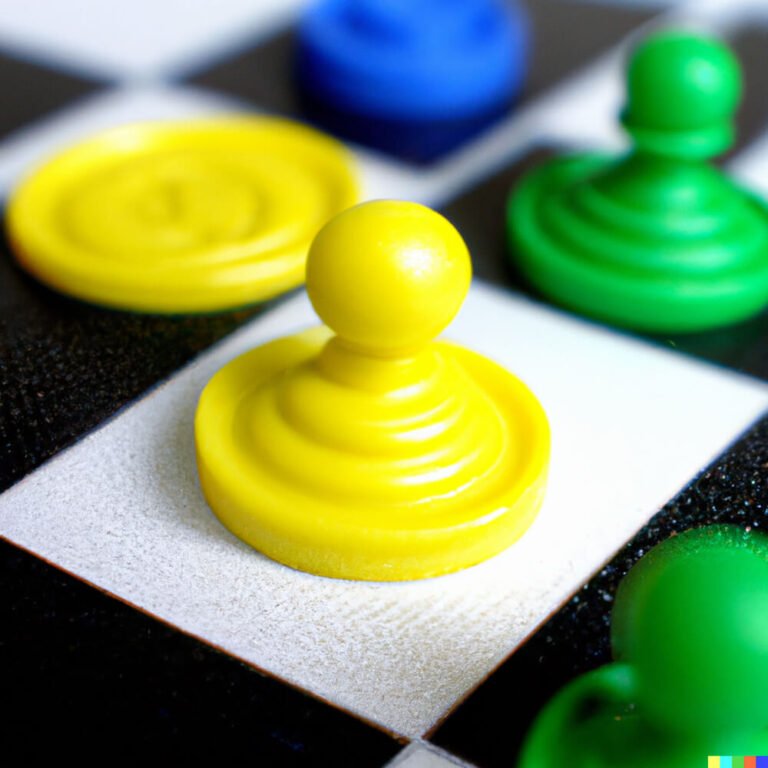Monopoly rules classic board game is an iconic and beloved game that has been a staple in households for decades. This classic board game has stood the test of time, entertaining families and friends with its competitive and strategic gameplay. With its rich history and enduring popularity, Monopoly continues to be a favorite among both casual gamers and serious board game enthusiasts.
Originally created in the early 20th century, Monopoly has evolved into a timeless classic that continues to captivate players of all ages. Its combination of luck, strategy, and negotiation has made it a go-to choice for game nights and gatherings. The game’s simple yet addictive premise of buying, trading, and building properties has solidified its place as one of the most popular board games of all time.
The enduring appeal of Monopoly lies in its ability to bring people together for hours of fun and friendly competition. Whether it’s landing on Boardwalk or striking a deal with opponents, the game offers endless opportunities for exciting gameplay and memorable moments. In the following sections, we will explore the components of the game, how to set it up, its rules, winning strategies, house rules variations, common mistakes to avoid, and where to purchase this timeless classic board game.
Monopoly Game Components
Monopoly is a classic board game that has entertained players for generations. Part of the reason for its enduring popularity is the unique components that make up the game. From the iconic game board to the player pieces, Monopoly is instantly recognizable and holds a special place in many people’s hearts.
Overview of the Game Board
The Monopoly game board consists of 40 spaces representing properties, as well as spaces for Chance, Community Chest, Free Parking, Go to Jail, and Go. The properties are color-coded into groups, with each group having its own set of coordinated properties that players can purchase. The outer edge of the board also serves as a track to move players’ pieces around during gameplay.
Description of Game Pieces and Tokens
One of the most beloved aspects of Monopoly is the player tokens. These metal or plastic pieces come in various shapes and designs, such as a top hat, dog, car, or shoe. Each player selects a token at the beginning of the game to represent them on the board throughout play.
Explanation of Cards and Money
In addition to the game board and pieces, Monopoly also includes two decks of cards: Chance and Community Chest. When landed on or drawn from these decks, players must follow instructions that can result in gains or losses. The game also includes paper money in various denominations that players use to buy properties and pay rent. As one of the most essential components in Monopoly, managing money effectively is vital in ensuring success.
How to Set Up the Game
Monopoly is a classic board game that has been a favorite among families and friends for decades. Setting up the game board properly is essential to ensure a fair and enjoyable gameplay experience. Here is a step-by-step guide on how to set up the game:
1. Unfold the game board: The first step in setting up Monopoly is to unfold the game board and place it in the center of the playing area. The board consists of 40 spaces representing properties, railroads, utilities, and other locations.
2. Distribute money: The bank should be set up next, with each player receiving an equal amount of money to start the game. This will typically include two $500 bills, four $100 bills, one $50 bill, one $20 bill, two $10 bills, one $5 bill, and five $1 bills.
3. Choose game pieces: Players then need to choose their game pieces or tokens, which may include classic options such as the top hat, race car, battleship, thimble and more. Once everyone has selected their token, determine who goes first by rolling the dice.
In addition to these steps for setting up Monopoly, it’s also important for players to be familiar with the rules and components of the game before starting. With proper setup and understanding of the game rules, players can dive into an exciting world of property management and deal-making as they strive for domination on the Monopoly board.
Understanding Monopoly Rules
Detailed Explanation of How to Play
In Monopoly, the main goal is to be the last player remaining after all other players have gone bankrupt. Players achieve this by buying and developing properties, collecting rent from opponents who land on those properties, and carefully managing their money.
The game starts with each player rolling the dice to determine the order of play. As players move around the board, they have opportunities to purchase properties, pay rent, draw chance and community chest cards, or even land in jail.
Description of Property Ownership and Rent
Property ownership is a key aspect of Monopoly. When a player lands on an unowned property, they can choose to purchase it at its listed price. Once owned, a player can develop the property by purchasing houses or hotels to increase the amount of rent collected when opponents land on it. The amount of rent depends on the type and level of development of the property. The more properties a player owns, the more potential income they can generate.
How to Handle Chance and Community Chest Cards
Chance and community chest cards add an element of uncertainty to Monopoly gameplay. When a player lands on these spaces, they must draw a card from the corresponding deck which may instruct them to complete various actions such as paying taxes, advancing to certain spaces, or receiving money from every player. These cards can significantly impact a player’s standing in the game and must be managed strategically for success in Monopoly.
Strategies for Winning Monopoly
Monopoly is a classic board game that has been around for generations, and it continues to be a favorite among families and friends. While luck does play a role in the game, there are also strategies that players can employ to increase their chances of winning.
One key strategy is to focus on amassing wealth and property early in the game. By purchasing as much property as possible and building houses and hotels, players can increase their income through rent and potentially bankrupt their opponents.
Another important strategy in Monopoly is negotiation and deal-making. Players should not underestimate the power of making deals with opponents, whether it’s trading properties or making financial arrangements. By negotiating effectively, players can gain an advantage over their opponents and strengthen their position in the game.
Effective money management is also crucial for success in Monopoly. As the game progresses, players must be mindful of how they spend their money, especially when it comes to investing in properties or paying rent to other players. Making wise financial decisions throughout the game can make a significant difference in a player’s chances of winning.
Overall, playing Monopoly strategically involves a combination of sound financial decisions, negotiation skills, and smart property management. By employing these strategies, players can maximize their chances of coming out on top in this classic board game.
| Strategy | Description |
|---|---|
| Amass Wealth Early | Purchase as much property as possible and build houses/hotels |
| Negotiation and Deal-making | Trade properties and make financial arrangements with opponents |
| Money Management | Make wise financial decisions throughout the game |
Monopoly House Rules
Monopoly is a classic board game that has been enjoyed by families and friends for decades. In addition to the standard rules, many players have created their own variations of the game to add an extra layer of excitement and strategy. These custom rules, known as “house rules,” can range from minor tweaks to major overhauls of the classic Monopoly gameplay.
One popular house rule is the “Free Parking Jackpot,” where all fines and taxes paid to the bank are collected in the center of the board and awarded to the next player who lands on Free Parking. Another common house rule is allowing players to build houses and hotels even if they do not own a complete set of properties within a color group. This can lead to more intense competition for property dominance on the board.
Some house rules are designed to speed up gameplay, such as implementing a time limit for each player’s turn or auctioning off properties immediately after they are landed on. On the other hand, some players prefer more complex house rules that introduce additional elements like stock trading or variable rent amounts based on dice rolls.
It’s important to note that while house rules can add a fun twist to Monopoly, they can also change the dynamics of the game significantly. It’s best to ensure that all players agree on which house rules will be used before starting a game in order to avoid confusion or disputes during gameplay.
| House Rule | Description |
|---|---|
| Free Parking Jackpot | All fines and taxes paid collect in the center of the board, awarded to next player landing on Free Parking |
| Building without complete set | Allowing players to build houses and hotels even without owning a complete set within a color group |
| Auctioning properties immediately | Implementing an immediate auction for properties once landed on |
Common Mistakes to Avoid
When playing Monopoly, it is important to be aware of common mistakes that can cost you the game. Here are some pitfalls to watch out for during gameplay and how to avoid making costly mistakes:
1. Ignoring property upgrades: One common mistake in Monopoly is neglecting to upgrade your properties with houses and hotels. Upgrading your properties can significantly increase the amount of rent you can charge opponents landing on your spaces. It’s important to prioritize property upgrades to maximize your income and gain an advantage over other players.
2. Holding on to low-value properties: Another mistake players often make is holding on to low-value properties for too long. While it may seem beneficial to have a diverse property portfolio, it’s crucial to focus on acquiring complete sets of properties and trading or selling off lower-value ones. This will allow you to build houses and earn higher rents, ultimately giving you a better chance at winning the game.
3. Overbidding in auctions: During property auctions, it’s easy to get caught up in the competition and overbid for a property. This can deplete your cash reserves and leave you vulnerable if unexpected expenses arise later in the game. It’s essential to assess the value of a property before entering an auction and avoid getting carried away with bidding wars that could hurt your overall financial position.
By being mindful of these common mistakes, players can improve their strategy and increase their chances of success in Monopoly. Being conscious of these pitfalls will help prevent unnecessary setbacks and ultimately lead to a more enjoyable gaming experience for all participants.
Conclusion and Where to Purchase Monopoly
In conclusion, Monopoly remains a timeless classic board game beloved by generations of players. Its enduring appeal can be attributed to its combination of strategy, luck, and negotiation, making every game session unique and engaging. The game components, rules, and strategies for winning all contribute to the excitement and challenge of playing Monopoly. Whether you are a seasoned player or new to the game, the opportunity to amass wealth and bankrupt opponents make for an exhilarating experience each time.
For those interested in adding this iconic game to their collection or introducing it to friends and family, Monopoly can be easily purchased from various retailers both online and offline. Local toy stores, department stores, as well as online platforms such as Amazon or eBay offer a range of versions including classic editions with traditional gameplay or themed versions based on popular franchises.
With its accessibility and affordability, it’s never been easier to bring the excitement of Monopoly into your home.
In summary, Monopoly is more than just a board game – it’s an immersive experience that tests your financial acumen and decision-making skills. Whether you’re wheeling and dealing during gameplay or simply enjoying some friendly competition with loved ones, Monopoly promises hours of fun and entertainment for everyone involved. So why wait? Purchase a copy today and see for yourself why this classic board game continues to captivate players worldwide.
Frequently Asked Questions
How Do You Play Standard Monopoly?
In standard Monopoly, players take turns rolling dice and moving around the board. When a player lands on an unowned property, they have the opportunity to purchase it. If they choose not to buy it, then the property goes up for auction.
Players collect rent if others land on their properties and can also improve their properties by building houses and hotels. The goal is to bankrupt your opponents by charging them rent while strategically managing your own funds.
What Is the Rule of Monopoly?
The main rule of Monopoly is to be the last player remaining after all others have gone bankrupt. This is achieved by acquiring properties and charging rent when other players land on them, as well as making shrewd investments in houses and hotels in order to maximize the amount of rent collected from opponents.
How Do You Set Up Classic Monopoly?
To set up classic Monopoly, each player selects a game piece and places it on “Go.” All properties are shuffled, and then dealt out until every one has an owner – this is achieved through either purchasing or auctioning off properties upon landing on them.
Houses and hotels are distributed, money is allocated based on each player’s starting position and options like jail time or free parking are determined before the game begins.

I love playing all kinds of games – from classics like Monopoly to modern favourites like Ticket to Ride.
I created this blog as a way to share my love of board games with others, and provide information on the latest releases and news in the industry.





